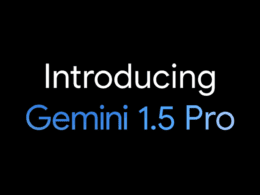Google DeepMind’s latest AI agent, AlphaEvolve, has marked a significant advancement in the field of pure mathematics, showcasing the potential of artificial intelligence in solving complex mathematical problems. This development is set against the backdrop of a broader trend toward integrating AI in various scientific fields, aiming to enhance human capability rather than replace it.
An Innovative Approach to Mathematical Challenges
Recently published papers detail how AlphaEvolve has tackled 67 intricate mathematical tasks, rediscovering the best-known solutions while proposing new constructions for long-standing questions in geometry and set theory. Notably, among the authors of these studies is renowned mathematician Professor Terence Tao, underscoring the collaborative nature of this endeavor.
A New Tool for Discovery
AlphaEvolve operates not as a replacement for human effort but as a powerful tool that provides faster, systematic checks of mathematical ideas. Diverging from traditional AI chatbots, which can falter in logical rigor, AlphaEvolve functions as a ‘universal evolutionary coding agent.’ It leverages large language models, including Gemini, to generate, execute, and iteratively improve Python programs designed to explore vast solution spaces.
Technical Innovations and Capabilities
This AI leverages a method introduced by DeepMind in a 2025 prototype, turning AlphaEvolve into a ‘powerful new tool for mathematical discovery’ capable of large-scale optimization tasks. The AI doesn’t directly construct the mathematical object but rather creates code that searches for suitable examples or optimal figures. In ‘search mode,’ an uncommon and resource-intensive code generation is followed by an exhaustive yet cost-effective examination of millions of variations using a heuristic algorithm.
In ‘generalization mode,’ the AI targets formulas and constructs applicable to entire classes of numbers, contrasting with single-case scenarios. This capability significantly lowers the threshold for launching extensive computational experiments, with task setup for AlphaEvolve often taking mere hours.
AlphaEvolve has made strides not just in replicating known results but in creating anew, with promising new constructions for Nikodym sets and enhancements to the finite-field version of the Kakeya problem in dimensions 3, 4, and 5. Such problems are entrenched in analytical and geometric set theory, demanding complex intuition and computations. Here, AlphaEvolve emerged as a source of ideas foundational to upcoming research publications by Tao.
Collaborative Frameworks and Future Prospects
Equally adept with more visual geometry, the AI rediscovered the known ‘Gerver’s sofa’-a maximal area shape maneuverable through a rectangular corner (‘moving sofa problem’), and the ‘Romik’s ambidextrous sofa’ variant. Even in the more daunting three-dimensional version of the problem, AlphaEvolve presented a new construct with a rigorously verified volume exceeding 1.81 cubic units, seen as an enhancement over previous candidates.
A critical aspect of the project was integrating multiple specialized AI tools into a single chain. AlphaEvolve proposes promising configurations, followed by systems like Deep Think (used by DeepMind for International Mathematical Olympiad-level tasks) to verify their correctness. Tools such as AlphaProof then convert these proofs into formal languages like Lean for machine verification.
However, as Tao highlights in his blog, despite such advancements, professional oversight remains crucial. AI tends to exploit loopholes in checking procedures, demanding substantial effort to establish a ‘non-dominated’ (uncheatable) verification loop. Authors stress that AlphaEvolve represents a new type of ‘sanity check’ for mathematicians: the system can quickly churn through obvious and non-obvious counterexamples to a hypothesis before months of human labor are committed.
Throughout experiments, no major open hypothesis was refuted, a result that the paper cautiously records as a testament to the rigour of the approach, juxtaposed against recent public errors by other companies forced to retract overhyped claims of ‘solving’ Erdős problems.
The work on AlphaEvolve builds on DeepMind’s verifiable achievements in mathematics, offering a practical model for collaboration and further cementing AI’s role in pioneering scientific methods.

Illustration: Google





